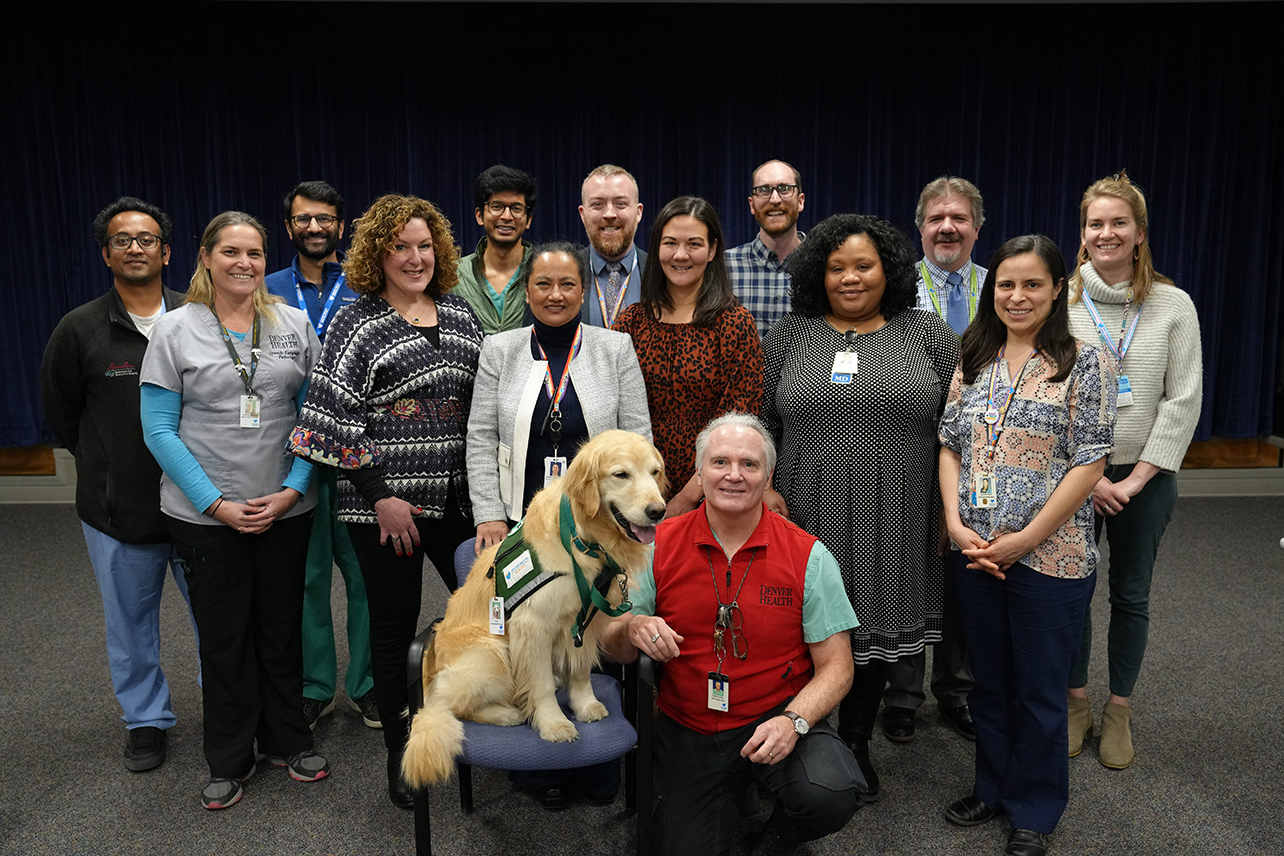Denver Health's Brooke Gordon Comprehensive Epilepsy Center is accredited by the NAEC as a level 4 epilepsy center. Level 4 epilepsy centers have the professional expertise and facilities to provide the highest level medical and surgical evaluation and treatment for patients with complex epilepsy. Learn more about NAEC.
This means we are able to perform the full suite of epilepsy surgical options for the management of epilepsy.
Epilepsy affects 3.4 million Americans, approximately 30 percent of whom continue to suffer in spite of the anti-epileptic medications currently available.
The Comprehensive Epilepsy Program at Denver Health offers a variety of advanced epilepsy care services, including evaluation and diagnosis, medical and surgical interventions, and support for adult and pediatric patients suffering from epilepsy and seizures.
We invite you to learn more about our services and our multidisciplinary team of specialists as well as epilepsy resources and information for talking with your doctor about epilepsy.
Recent News
- Young Woman Credits Life-Changing Surgery To ROSA Machine At Denver Health's Brooke Gordon Epilepsy Center
- Patient sings during brain surgery
Additional Resources and Information
When an epileptic seizure occurs, the following should be done to prevent injuries:
- Do not hold or tie the person down.
- Do not place anything in the person's mouth or try to force the teeth apart. The person is not in danger of swallowing their tongue.
- Do not pour any liquid into the person's mouth or offer food or medicines until he is fully awake.
- If possible, turn the person on his side during the seizure.
- Place something soft under the person's head, loosen tight clothing, and clear the area of sharp or hard objects.
- Stay with the person until the seizure ends. Let the person rest until he is fully awake.
- Use a watch to time how long the seizure lasts.
- Watch the type of movement and position of the person's head or eyes during the seizure.
Click here for more information on seizure recognition and first aid certification from the Epilepsy Foundation.
Symptoms depend on the type of seizures that a person has.
Generalized seizures may cause:
- Eye blinking or staring into space
- Crying out
- Loss of consciousness
- Falling to the ground
- Muscle jerking or spasms
- Feelings of tiredness after the seizure has ended
Partial seizures may cause:
- Muscle twitching
- Sensing a strange taste or smell
- Confusion or a dazed feeling
- Inability to respond to questions or directions
Learning and avoiding triggers can help some people with their seizures. Triggers can differ from person to person. Some common triggers are:
- Missed medication
- Lack of sleep
- Flashing bright lights
- Excessive alcohol use
- Drug use
- Stress
Seizures happen because of abnormal brain activity. For many people, it is not known why this happens. Some known causes are:
- Stroke
- Head trauma
- Alcohol use disorder
- Diseases that get worse over time, such as Alzheimer disease
- Brain damage
- Brain tumors
- Infections, such as bacterial meningitis
- Genetic problems
- Problems with the immune system
Things that may raise the risk of seizure disorder are:
- Cerebrovascular disease in older adults
- Parasitic diseases, such as malaria or cysticercosis
- Alcohol use disorder

Contact Us
For more information about services available to patients with epilepsy and seizures, please contact
Wendy Kogel at wendy.kogel@dhha.org or call 303-602-4368.
All referrals for Denver Health's Epilepsy Monitoring Unit should be faxed to 303-602-5055. All referrals for the epilepsy clinic should be faxed to 720-956-2320.
For clinical questions, please contact the neurology clinic nurse line at 303-602-6194. The 24-Hour NurseLine is 303-739-1211.
Our Locations
Epilepsy Clinic - 660 Bannock Street, 5th floor, Denver, CO 80204:
Epilepsy Monitoring Unit - 780 Delaware St, Pavilion B, 3rd floor, Denver, CO 80204



